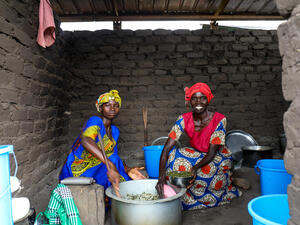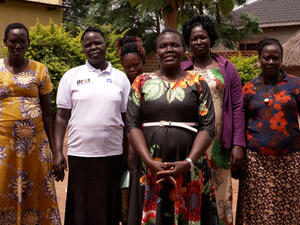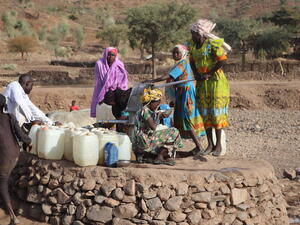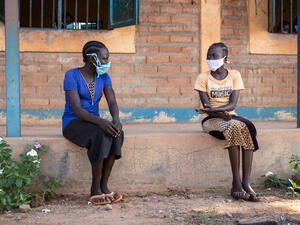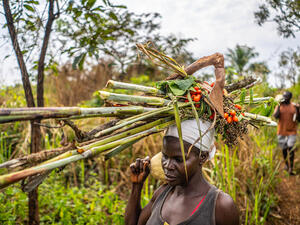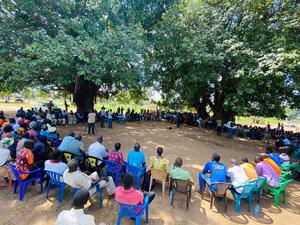South Sudanese in exile speak up for peace

South Sudanese in exile speak up for peace
Deng Malual knows all too well the experience of being a refugee. In 2006, when he was just 13, he was out playing with his friends when their village in South Sudan’s Jonglei State was attacked. Forced to flee, he was separated from his parents.
He made it to Kakuma refugee camp in northern Kenya, where he spent seven years living with a foster family and trying desperately to get news about his parents. The news came shortly after South Sudan’s independence in 2013, that his family was back home.
Deng decided to return home but unfortunately, his dream of reuniting with his family was cut short when another war broke out before he could get to his village. He had to flee again, this time to Uganda and eventually, back to Kakuma.
Now 26, he spends his days in Kakuma working as a community volunteer and a youth leader.
“I have lived in a refugee camp for half of my life,” says Deng.
He hopes that one day, peace will prevail in his home country.
“I left South Sudan when I was young but home is always home,” he says. “I miss how life was back home.”
“I have lived in a refugee camp for half of my life.”
Deng was among a group of refugees who took part in meetings with the Independent Boundaries Commission (IBC) of South Sudan in Kakuma this May. The IBC is one of the key institutions set up under the 2018 Revitalized Agreement on the Resolution of the Conflict in the Republic of South Sudan (R-ARCSS). The IBC is mandated to determine the number of states in South Sudan, their boundaries and the representation of the council of states.
Deng is grateful for the opportunity to have a voice in the process, which he believes is crucial for all refugees to be a part of.
“The involvement of refugees in this process is important because they will be the ones who will live in those states,” he said, at the end of the meeting. “The chance to meet with the IBC members to air our views is a good thing because sometimes, we only access information online and those who cannot read are left out.”
Another refugee leader, Betty Zekira, who lives in the nearby Kalobeyei Settlement, emphasized the importance of refugees participating in the peace process.
“We want the leaders to know the pain of living in exile and the need for true peace back home,” said the 25-year-old, adding that refugees are the most affected people by the conflict and their input should be considered throughout the process.
“We want the leaders to know the pain of living in exile and the need for true peace back home.”
“The involvement of women and youth in the process is also very important because women are the most affected during war,” she added. “Women and children suffer a lot and most of the time, their voices are not heard and they feel hopeless and wasted.”
UNHCR, the UN Refugee Agency, promotes the participation of persons of concern in the peace process and national reconciliation and has tirelessly urged all parties to involve South Sudanese refugees.
See also: On anniversary of South Sudanese independence, UNHCR urges leaders to deliver lasting peace
Besides helping to facilitate the IBC mission to Kenya, UNHCR also facilitated a delegation of South Sudanese refugees to meet with the leadership in Kharoum, Sudan in 2018, where they were able to explain what they expected from the revived peace talks.
“Refugees are ready and willing to be included and consulted for them to have confidence in the entire [peace] process.”
“More than a third of South Sudan’s population is displaced either within or outside the country. It is therefore crucial for refugees to be involved in the peace building processes envisaged in the Peace Agreement,” says Arnauld Akodjenou, the Regional Refugee Coordinator for the South Sudan Situation and Special Advisor to the High Commissioner.
“Refugees are ready and willing to be included and consulted for them to have confidence in the entire process,” he adds.
There are currently over 2.3 million South Sudanese refugees living in exile in the region, making South Sudan Africa’s largest refugee crisis. The majority of those affected are women and children who account for almost 80 percent of the refugee population living in six countries in the region.


